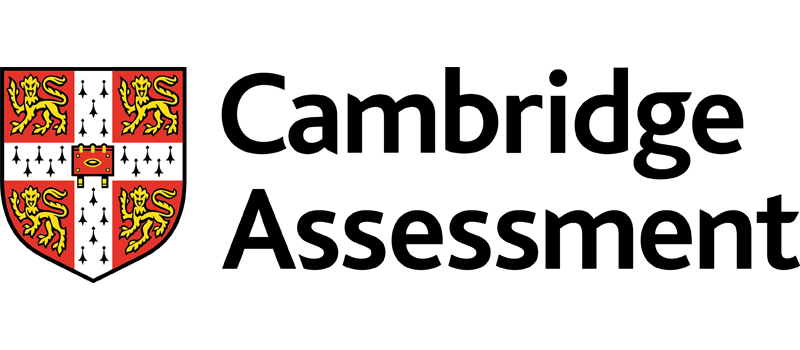
Construction Management - Design, Execution and Supervision
Course ID: 2509014501258EGI
Course Dates : 01/09/25 Course Duration : 5 Studying Day/s Course Location: Istanbul, Turkey
Language: Bilingual
Course Category: Professional and CPD Training Programs
Course Subcategories: Leadership and Management Excellence
Course Certified By: * Projacs Academy
* Professional Training and CPD Programs
Certification Will Be Issued From :
KSA
Course Fees: £3,424.06
Vat Not Included in the price. VAT may vary depending on the country where the course or workshop is held.
Click to Pay
Date has passed please contact us Sales@e-s-hub.com
Course Information
Introduction
Construction management is a dynamic and multifaceted discipline that bridges the gap between design conception and project delivery. As infrastructure development continues to shape economies worldwide, the demand for skilled professionals who can oversee complex projects from inception to completion has never been greater. The construction industry faces unique challenges, including cost overruns, delays, and safety concerns, which are often rooted in inadequate planning, poor communication, and inefficient execution. This course addresses these critical issues by equipping participants with the tools, strategies, and frameworks necessary to excel in managing construction projects effectively.
One of the most pressing challenges in construction management is aligning design intent with practical execution. For instance, the Sydney Opera House, an iconic architectural marvel, faced significant delays and budget overruns due to discrepancies between its ambitious design and construction feasibility. By understanding the interplay between design, execution, and supervision, professionals can mitigate risks and ensure seamless project delivery. This course delves into established theories such as Lean Construction and Total Quality Management (TQM), offering participants insights into optimizing resources and enhancing productivity.
The importance of this subject extends beyond individual career growth; it directly impacts organizational success. Companies that invest in robust construction management practices often experience improved profitability, reduced waste, and enhanced client satisfaction. For example, firms adopting Building Information Modeling (BIM) have reported a 20% reduction in project costs and a 30% decrease in rework. By mastering the principles taught in this course, participants will be better positioned to contribute to their organizations’ strategic goals while advancing their own professional trajectories.
Furthermore, the course emphasizes the role of leadership and communication in construction management. A case in point is the Burj Khalifa project, where effective stakeholder engagement and meticulous oversight were pivotal to its success. Participants will explore how interpersonal skills, combined with technical expertise, can foster collaboration and drive results. These lessons are particularly relevant in today’s globalized industry, where cross-cultural teams and remote work environments are increasingly common.
Emerging trends such as sustainable construction and digital transformation also play a central role in shaping modern construction management practices. With growing emphasis on green building certifications like LEED and advancements in technologies such as drones and AI-driven analytics, professionals must stay abreast of innovations to remain competitive. This course integrates these trends into its curriculum, ensuring participants are equipped to navigate the evolving landscape of the construction industry.
Ultimately, "Construction Management - Design, Execution, and Supervision" is not just about learning theoretical concepts but about applying them in real-world scenarios. Whether you are overseeing a residential development or managing a large-scale industrial project, the skills acquired in this course will empower you to deliver high-quality outcomes on time and within budget. Through a blend of lectures, case studies, and hands-on exercises, participants will emerge with a comprehensive understanding of what it takes to succeed in this demanding yet rewarding field.
Objectives
By attending this course, participants will be able to:
Analyze key principles of construction management and their application in diverse project settings.
Evaluate design plans to identify potential risks and propose mitigation strategies.
Design comprehensive project schedules using critical path method (CPM) techniques.
Implement quality assurance protocols to ensure compliance with industry standards.
Apply safety management frameworks to minimize workplace accidents and liabilities.
Assess the impact of emerging technologies on construction processes and recommend suitable innovations.
Synthesize data from various stakeholders to facilitate informed decision-making throughout the project lifecycle.
Who Should Attend?
This course is ideal for:
Project managers seeking to enhance their ability to oversee construction projects efficiently.
Engineers and architects looking to bridge the gap between design and execution.
Site supervisors aiming to improve their leadership and technical skills.
Consultants and contractors interested in adopting best practices for project delivery.
These groups will find the course valuable because it provides actionable insights into addressing common challenges in construction management, such as budget constraints, timeline adherence, and risk mitigation. While prior experience in construction is beneficial, the course is structured to accommodate both intermediate learners and advanced practitioners, making it accessible to a wide range of professionals.
Training Method
• Pre-assessment
• Live group instruction
• Use of real-world examples, case studies and exercises
• Interactive participation and discussion
• Power point presentation, LCD and flip chart
• Group activities and tests
• Each participant receives a 7” Tablet containing a copy of the presentation, slides and handouts
• Post-assessment
Program Support
This program is supported by:
* Interactive discussions
* Role-play
* Case studies and highlight the techniques available to the participants.
Daily Agenda
The course agenda will be as follows:
• Technical Session 08.30-10.00 am
• Coffee Break 10.00-10.15 am
• Technical Session 10.15-12.15 noon
• Coffee Break 12.15-12.45 pm
• Technical Session 12.45-02.30 pm
• Course Ends 02.30 pm
Course Outlines
Foundations of Construction Management
Overview of construction management principles and frameworks.
Key phases of a construction project: initiation, planning, execution, monitoring, and closure.
Understanding contracts and legal considerations in construction.
Introduction to Lean Construction and Total Quality Management (TQM).
Day 2:
Design and Planning
Principles of effective design coordination and collaboration.
Risk assessment and mitigation strategies during the planning phase.
Developing detailed project schedules using CPM techniques.
Resource allocation and budgeting fundamentals.
Day 3:
Execution and Supervision
Best practices for site supervision and team leadership.
Ensuring compliance with health, safety, and environmental regulations.
Managing change orders and unforeseen challenges during execution.
Tools and techniques for performance monitoring and reporting.
Day 4:
Technology and Innovation
Role of Building Information Modeling (BIM) in modern construction.
Applications of drones and AI in project management.
Sustainable construction practices and green building certifications.
Evaluating the ROI of adopting new technologies.
Day 5:
Case Studies and Practical Applications
Review of real-world case studies highlighting successful project delivery.
Group exercise: Developing a comprehensive project plan.
Lessons learned from failed projects and how to avoid similar pitfalls.
Final Q&A session and wrap-up discussion.



















































